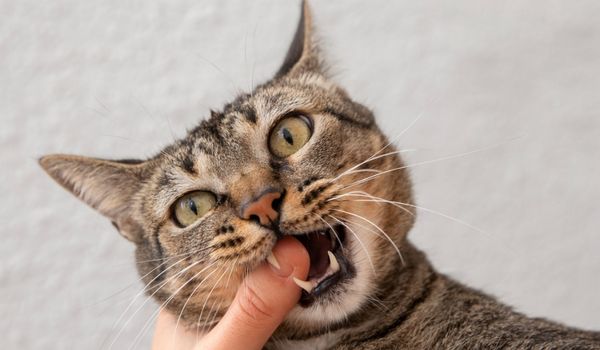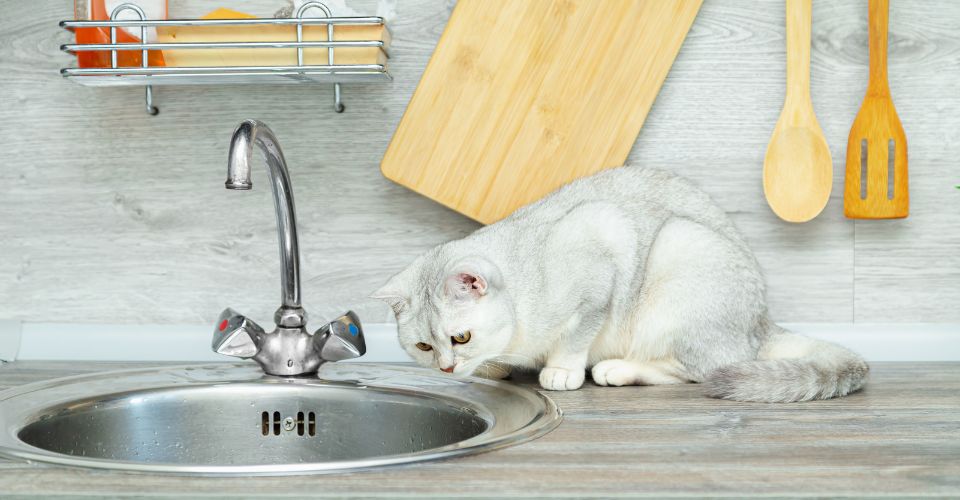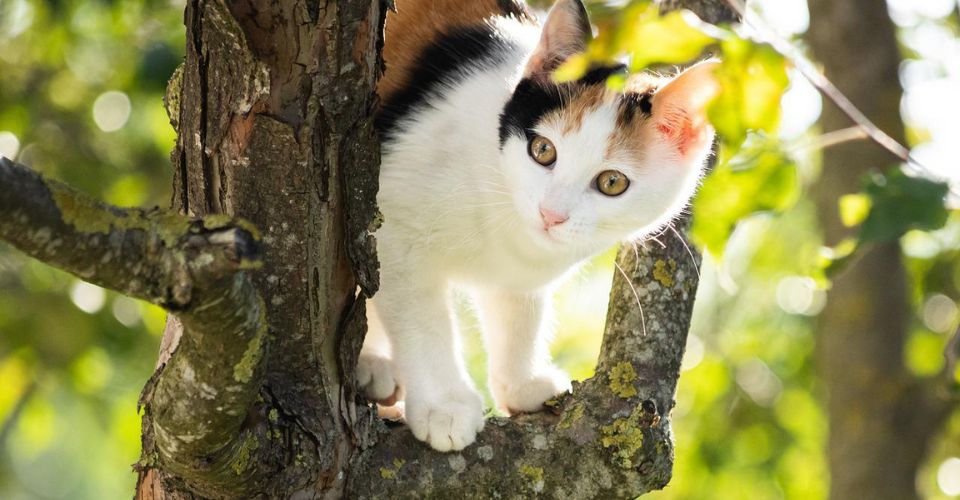Cats are affectionate, warm, and snuggly creatures. Give them a gesture of some love, and these felines will be quick to flop over the ground and your feet.
Despite their cordial personality, they can be quite mischievous and aggressive at times. A cat biting its owner can be a part of her normal behavior, as they are natural-born predators. However, there is a fine line between playful biting and hostile one. Whatever the underlying reasons behind cat biting may be, you need to know how to stop your cat from biting you.
That is what we will discuss here in the lines below. But to tackle the issue, it is essential to get to the actual motivation behind your cat biting you.
Why Do Cats Bite?
It is important to identify a cat’s gentle nip while in a frolic mood, which is over quickly. An aggressive bite is usually accompanied by other signs like hissing, spitting, crouching, and flattening of ears against the head.
Here are a few reasons that may push your cat to start biting you.
- Cats have an innate hunting instinct, and this is why they may be ready to pounce and sink their teeth into something to simulate killing. Sally J. Foote, DVM and International Association of Animal Behavior Consultants (IAABC) certified feline behavior consultant, says, “a happy cat is one who thinks [she’s] killed something every day.”
- Besides this, you may have noticed that one moment Mr. Whiskers is enjoying your strokes and petting, and the other, her canines are out! Therefore, it is crucial to learn your kitty’s body language and what it likes and dislikes.
- These fluffy friends are quite possessive and territorial. A cat’s perceived territory may be the entire house, the yard, the neighborhood, or just a room. It marks its turf by chin rubbing, patrolling, and urine spraying. Another feline fellow intruding her dominion can be a source of her aggression and frustration, which can be then redirected towards her owner.
- Any animal, while in pain, may lash out while being handled or touched due to being injured or because of a painful medical condition like arthritis, dental pain, or an abscess.
- Fur mamas are also very protective of their little kittens, as all mothers are. Maternal malice may occur if she deems one a potential threat to her babies. It is more often directed to other cats but can be directed to people too, especially during the first few days following the birth of her kittens.
- Lastly, cats might use biting as a way of communication or as a means of getting attention. Think ‘love nips’ when you’ve stopped cuddling your pet, and it wants more. This type of cat bite may be the least harmful.
Read: Why Does My Cat Bite Me?
How to Stop Your Cat From Biting You?
Now that we know the prime reasons why a cat might bite its owner, let’s discuss how to stop them from biting us.
1. Know Your Cat
Except for a cat behaviorist, no one can be more aware of a cat’s behavior than her owner. Therefore, it is foremost to understand when to stop petting and cuddling your cat and know which parts she doesn’t like to be petted on. This may include her belly or the area around her tail. Monitor your kitty’s body language and leave her alone if you notice any signs of irritation or aggression.
2. Playful Biting
Playful biting isn’t usually unpleasant. It is most common in kittens who explore their abilities and instincts by play biting. For cat owners, this may mean that their hands or feet can become the subject of pouncing and biting. To discourage this behavior, simply turn away and stop playing with them. Also, you may provide plenty of toys which it can bite and bury its incisors into.
3. Manage Territorial Behavior
If a cat exhibits territorial behavior, pet parents should prevent access to areas they have marked. Keep your cat indoors, close blinds or block window views to prevent it from seeing other felines roaming around. Furthermore, one can provide plenty of approved scratching items for kneading—toys will keep her busy and distracted.
4. Vet Appointments
Routine checkups with a vet are necessary, as it helps diagnose if your cat has an ongoing medical condition or a disease that may be causing her pain and hence, biting.
5. Maternal Protectiveness
In the case of cats becoming new moms, it’s best to avoid handling and approaching their little kittens during the first few days of their lives. This may bring out their aggressive side, causing them to spring into action for a bite or scratch.
6. Provide Plenty of Toys
Playing with your cat using your bare hand or any body part might not be a great idea. Hunting or playing should not be associated with a body part alone. Instead, there should be plenty of toys—chew toys, scratching posts, hammocks, etc.—to keep her engaged. Playing with toys will help prevent unwanted bites and keep Mr. Whiskers happy, energetic, and healthy.
7. Discourage Them
If they resort to biting during play, discourage them. You can indicate that playtime is over by making a noise or simply moving away, as other cats do when it is over. This will teach them their limitations and social boundaries.
8. Condition the Cat
Like most other animals, cats can also be conditioned or trained by rewarding them. When your fluffy friend plays with you gently, doesn’t over excitedly jumps at your feet when you enter, or is on her best behavior, reward her with treats. Pair the treat with a bell. It will then associate the treat with the bell, and treats will no longer be necessary. Gentle praises and verbal rewards to complement their good demeanor can also work like a charm. For example, “good girl/boy,” “good job,” etc.
9. Do Not Show Aggression to Your Cat
Cats are like our kids. But sometimes, their aggressive behavior might precipitate aggression from some owners as well. Avoid that.
Aggression towards your pet, especially physical punishment, should never cross a cat parent’s mind, as it will only arouse them more and cause them to fight back to defend themselves. Also, it will damage the bond between the cat and its owner. Very quickly, she may fear her parent and become withdrawn.
So, how to stop your cat from biting you? These techniques might help cat owners deal with their cat’s aggressive behavior. However, note that if the biting is due to any health issue, only the vet can give you an authoritative opinion on that.






